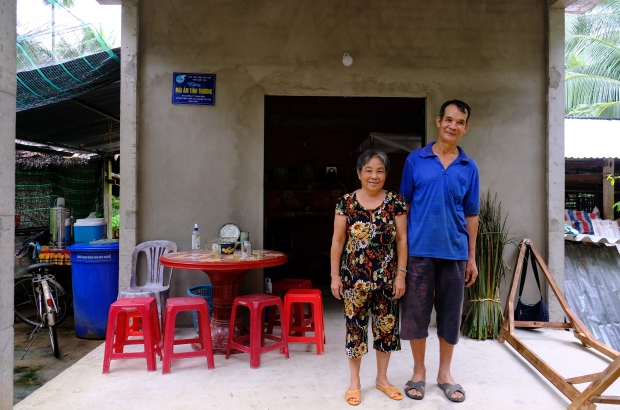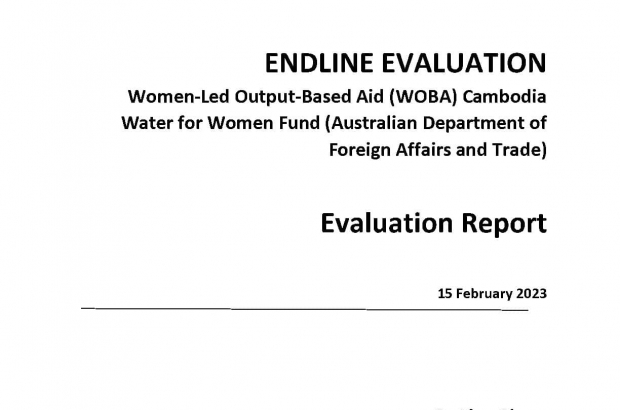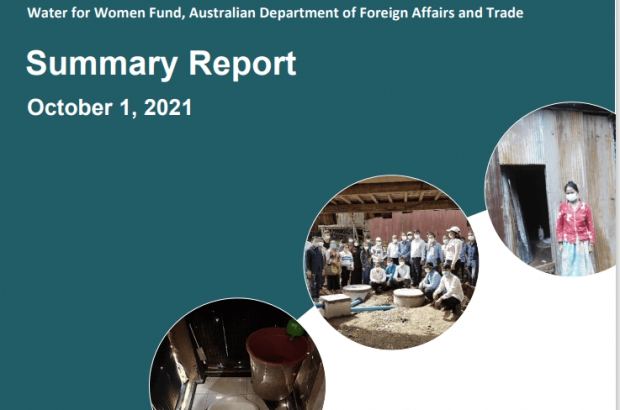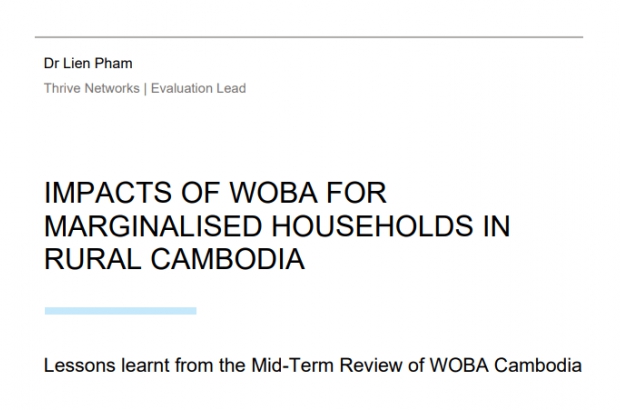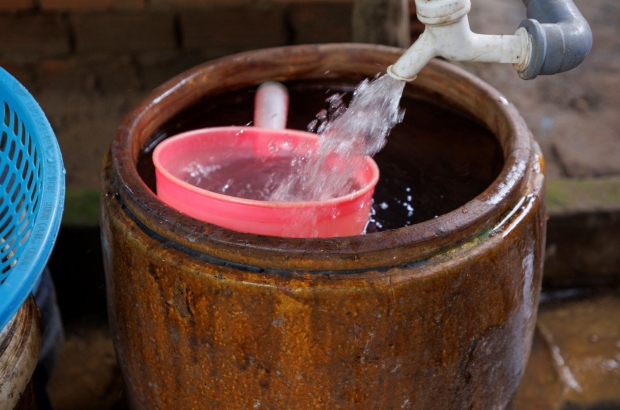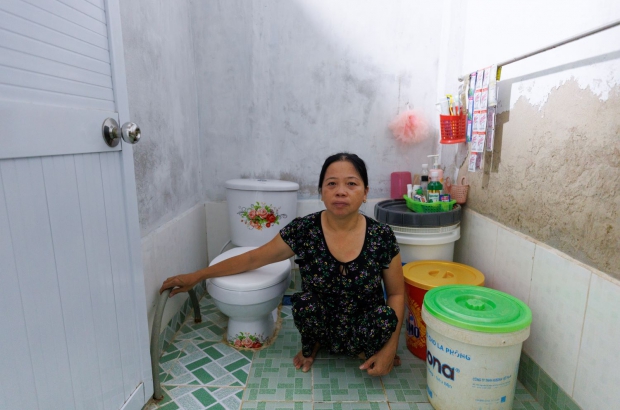2814
Impacts of WOBA for marginalized households in rural Viet Nam. Lessons learnt from the Mid-Term Review of WOBA Viet Nam
This learning note is based on the findings from the mid term review of WOBA Vietnam, to share the knowledge and lessons learned about the beneficiaries’ WASH needs and the intended/unintended impacts of the WOBA project for the beneficiaries who are the marginalized households in the rural Vietnam.
2471
End-line Evaluation Report for Women-Led Output-Based Aid (WOBA) Cambodia
The evaluation report focuses on all aspects of the project programming, including sanitation, piped water connection, climate resilient water safety plan pilot, FSM pilot, menstrual health hygiene training, and other WASH related trainings.
2318
Summary report of the Mid-Term Evaluation of WOBA Cambodia
This report summarises the findings of the mid-term evaluation of WOBA Cambodia. The evaluation assesses WOBA’s progress towards its planned outcomes and support learning by exploring the effectiveness of the strategies and activities implemented from June 2018 to June 2021. The summary report explores some initial indications of impacts and sustainability. It provides important recommendation in the ongoing implementation of the program and progress towards the project’s end-of-program outcomes.
2795
Impacts of WOBA Cambodia for Marginalised Households in Rural Cambodia: Lessons learnt from the Mid-Term Evaluation
This learning note is based on the findings from the MTR, focusing on the impacts (intended and unintended) of WOBA for marginalised households in rural Cambodia. The intended impact is the villagers’ awareness about the importance of improved sanitation for their health and the health of the community. Subsidies for latrines and water connections can be a nudge to get the family to decide, but understanding the value of building latrine for their own and others’ health is the decision trigger.
2960
WOBA Viet Nam partnership structure. Lessons learned from the Mid-term Review
The partnership structure of WOBA follows the government political structure to execute implementation therefore the PC has the power and decision making in all aspects of the project implementation. Based on this structure, the function of each organization in the partnership, and the role of each person in the partner organization has been already established prior to WOBA. The stability of the partnership structure and its members’ role in the implementation contribute to the achieving WASH targets in an effective way. A possible deviation is the WU with staff turnover resulting in some missed connection in the networks and missing important knowledge about WOBA. In this regard, ongoing training at the WU level especially at the village level is important.
2581
Mid-term Review Report: Women-Led Output-Based Aid (WOBA) Vietnam
This report presents and discusses the findings of the mid-term evaluation of WOBA Vietnam. The evaluation assesses WOBA’s progress towards its planned outcomes and support learning by exploring the effectiveness of the strategies and activities implemented from June 2018 to June 2021. The report explores some initial indications of impacts and sustainability. It provides important recommendation in the ongoing implementation of the program and progress towards the project’s end-of-program outcomes.

